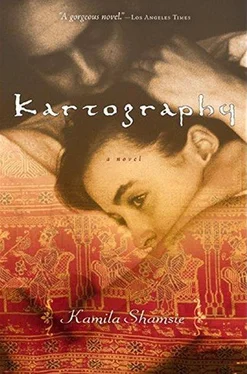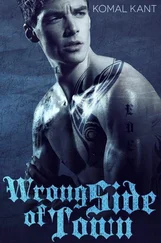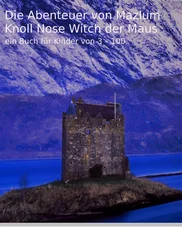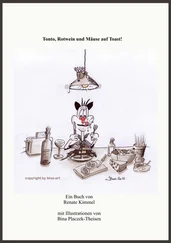‘Before you say or do anything, I want you to think about everything you know about this man. Think about the fact that Maheen forgave him. Ask Asif, ask Laila, the madness that existed in the country in ’71, and how he never succumbed to it, not for an instant, until that final moment. These things have to count. The father, the husband, he’s been all these years, that has to count.’
‘Yasmin, stop it,’ Aba said. ‘For God’s sake, stop it.’
‘She deserves an explanation. Karim deserves an explanation. Zafar, you deserve an explanation.’
‘I deserve? There was an animal inside me. Karim, I’m sorry. Raheen, I’m so sorry.’
‘Stop it!’ Ami slammed a fist on the tea trolley and sent cutlery flying. ‘There is no animal inside you that made you do it; there is no animal inside you at all, goddammit. Why won’t you accept that and look back at what you did, without feeling that looking back is an attempt at excusing yourself?’
I looked from one parent to the other. What did something that happened nearly a quarter of a century ago have to do with our lives? Why were my parents looking at me, so terrified, so grave, making me feel my lack of reaction was some sort of failure? Why were they being so…irritating? That was it, they were being irritating. As they so often could be, but that was the nature of parents and I hardly regarded it as unforgivable, so why stand around making a big deal of it? I opened my mouth to say all this, but to my horror I found I got no further than ‘You’re both…’ before my voice cracked and a sob constricted my throat.
My father’s face crumpled up, as if I had sliced a blade through him. I turned, hands bunching into fists, and yelled at Karim: ‘Who told you to come back, you outsider!’
I grabbed Aba’s car-keys from the coffee table, pushed past Aunty Laila, who was crying on her husband’s shoulder, and then I was off, fingers scraping against steel while opening the sliding door to the garden, feet pounding towards the car, Aba’s too-large shoes slapping against my soles and against the ground, feet pressing down on the accelerator, down and down, turning the volume of the music up and up…one times two is two two times two is four three times two is six four times two is eight in but an hour it shall be ten and so from our house in the middle of the street where the streets have no name the person you most admire… my father… why? because he’s never given me reason not to… and your mother?… yes, her too, but him first because…because I don’t know why but because he laughs louder and sings more often and always has an answer to any question I ask when the world doesn’t make sense to me and you’d think this sort of adoration wouldn’t last past adolescence but here I am, and everyone says I’m like him, and that makes me proud, hut how will you react when you see his face in shadows for the first time? I’ll, I’ll, I’ll…
When I finally pulled up in front of the gate to Zia’s beach hut, almost an hour after I’d torn out of Aunty Laila’s house, the fisherman who looked after all the huts on that strip of beach looked at me with a mixture of curiosity and concern, but opened the gate.
‘Is Zia Sahib also coming?’ Baba, the caretaker, asked when I got out of the car.
I shook my head. ‘Just me.’
‘Don’t stay long. It’s not safe driving back, particularly after dark. Particularly for a girl.’
I nodded and bent down to scratch the head of the yellow-brown mongrel who had come running towards me.
‘Hey, Puppi. What happened here?’ I inspected the caked black blood at the end of the dog’s ear.
‘Some men shot at him.’
‘Shot Puppi? Why?’
Baba shrugged. ‘Because they’re Pakistani. Don’t go on the second beach to the left.’
Baba wasn’t given to explaining such pronouncements — which could mean ‘bluebottles’ or ‘men roaring up and down the sand on motorbikes’ or ‘smugglers’ or ‘dolphin carcass’—and I didn’t feel myself capable of forming another sentence, so I nodded, kicked off Aba’s shoes, and made my way down to the beach via the natural footholds in the least sheer part of the dun-coloured cliffs. My feet sank in the warm sand when I jumped down from a height of a few feet. There was no one else on the beach. All mine. For a moment my mind actually cleared, and I stood, breathing in the sea air through my nose, closing my eyes to isolate the sound of waves so small they were just bands of water. The first time I had realized I was homesick at college was when I entered a friend’s dorm room and saw a collection of shells arrayed on her desk. I picked each one up in turn and held it to my ear, desperate to hear the sounds of my sea, but most of the shells were too small and even the largest only carried the echo of an unfamiliar ocean.
I walked further and further away from the cliffs — the sand sloped down, slicked and shiny with the last inrush of tide. I rolled up my shalwar, and waded in. The water was cold, but bearable. I splashed some onto my face. Pulled my feet out of their own prints and watched the sea rush in to take their place. Stood on a partly-submerged rock, unbothered by its eroded unevenness prickling my soles. Wished for a dolphin to leap out of the waves. Wished again.
I tried to hear my father saying those words in a tone other than the one he’d used to re-tell it to me. I tried to see his face say those words and mean it. But I couldn’t. So why were my fingers trembling as I held my hand out in front of me?
I closed my eyes to try to think of Karim’s face as it must have been when someone told him why his mother broke off her engagement with my father. It all fell into place, then, all his moments of withdrawal, all those cryptic comments about my father and about the traits he heard echoing through me. Who told him? Which meddling, trouble-making, heartless, disgusting…may you suffer, whoever you are, may you suffer by losing everything you thought most important and most secure, may you love someone who doesn’t love you back… No, worse, may you love someone who loves you but cannot look at you without seeing…what? what?
And then I saw her. Aunty Maheen. Young, beautiful and in love, but with a heart that was daily further cleft by emotions more complicated than anything conjured up by the words ‘polities’, ‘patriotism’, ‘loyalty’. Who every day heard the news, heard what was reported and what was not reported, heard things that I couldn’t pretend to know because no one ever talked about it, no one ever talked about those days and told us what the people who raised us had to bear and what they made others bear, and what could not be borne. What could not be borne for her was obvious, so obvious: Zafar stepping into history, no more pretence at living outside the world around him (as I know he lived for so long, as he had told me he lived for so long, without explaining when he stopped), Zafar stepping into history, stepping where she could not go, and kicking her away as he stepped there.
I saw her face as she heard her fiancé’s words, saw her expression register betrayal and, then, register loss, and I sat down hard on the jagged rock, weeping until my throat ached, weeping until I was past tears, my body convulsing in shudders that I couldn’t understand, couldn’t stop. How would I ever get off this rock, how would I ever go back? How? Karim. How? Aba, Aba, Aba.
How did my father? How, my mother? How, all those memories I had of the four of them together? When did…? What…? What…
Near sunset, he found me.
‘Zia said you’d probably be here.’ He was holding the shoes I had left at Aunty Laila’s.
I nodded. It seemed to require an extraordinary amount of effort.
Читать дальше












